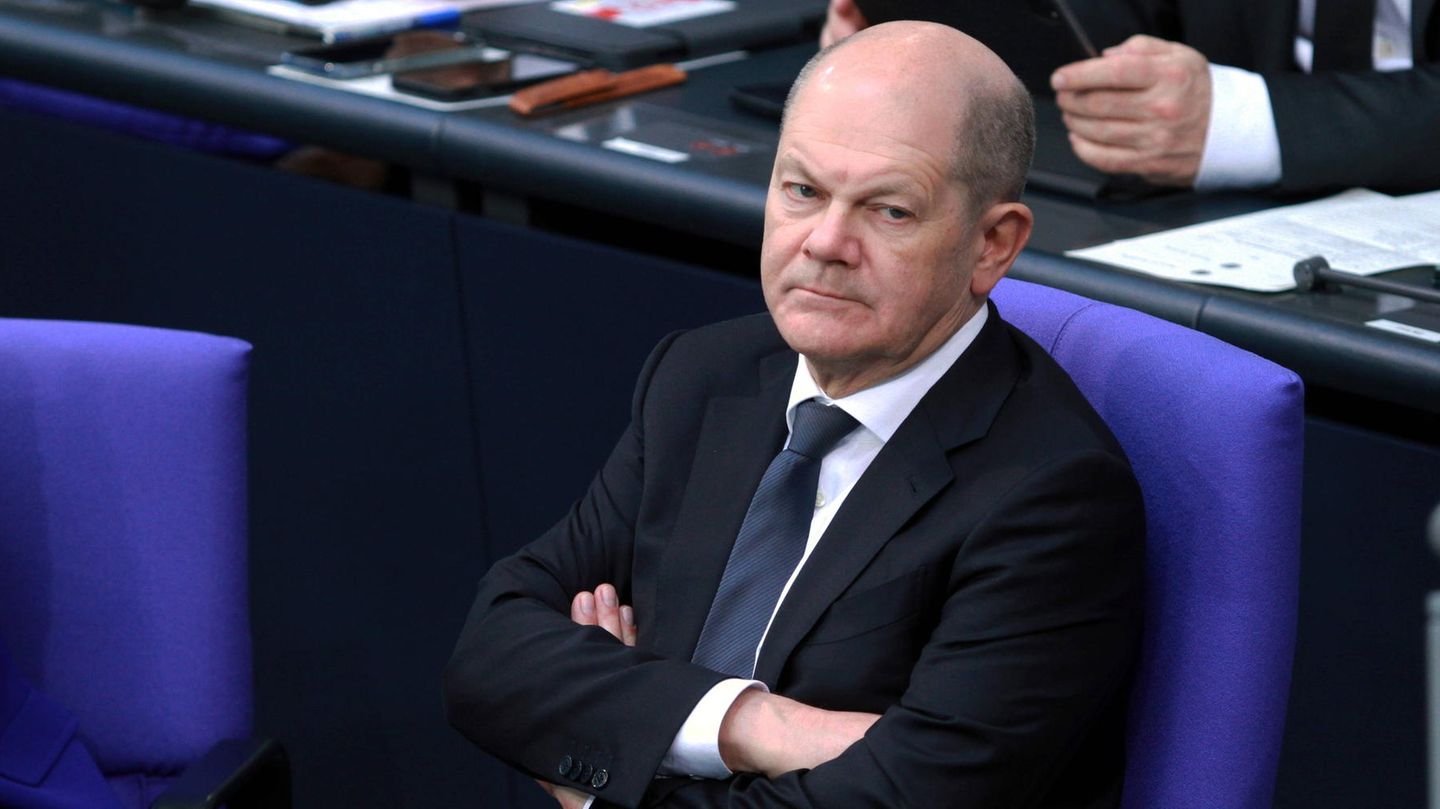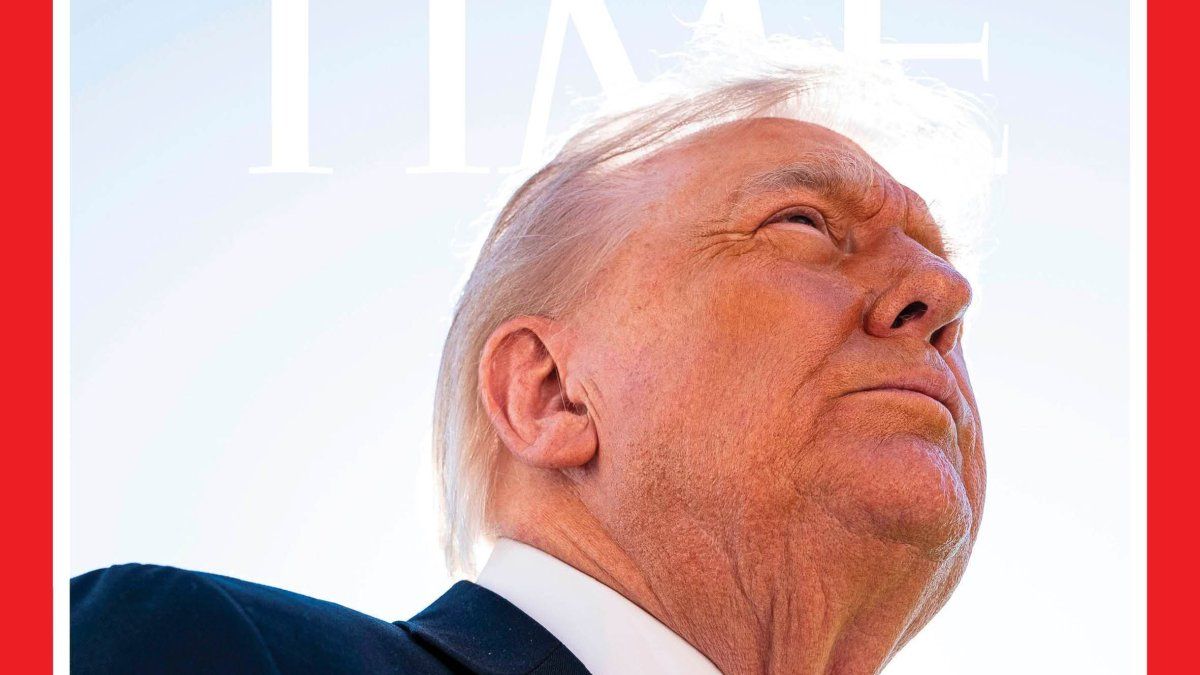Olaf Scholz was supposed to make a government statement on Europe on Wednesday. In doing so, he found ways to praise, above all, his own politics.
These are tough times for Olaf Scholz. The debate over his refusal to deliver Taurus cruise missiles to Ukraine continues. The Greens are angry because they see themselves discredited by him as a “pro-war” party. The second coalition partner, the FDP, is unpredictable because it is fighting to stay in the league. And in Saxony, where a new state parliament will be elected in the fall, Scholz’s co-governing SPD has slipped again, to six percent, according to the latest Insa survey. She could be kicked out of the state parliament there.
In this situation, the Chancellor made his government declaration in the Bundestag on Wednesday. The official topic: the European Council on Thursday and Friday in Brussels. Actually, it’s more material for political nerds who can still get something out of the often dull meetings of heads of state and government (even if these have become more explosive in times of war).
But Olaf Scholz used three tricks to turn the current event into an advertising speech for his government policy. It almost seemed as if he was practicing a bit of federal election campaigning, as if he was playing candidate for chancellor.
Olaf Scholz’s tricks: lessons from the past
Right at the beginning of his speech, Scholz compared the current state of the European Union with that of four years ago. At the time, Britain had just left the alliance and others were threatening to follow suit. The outbreak of the corona pandemic shocked the EU even more and led to permanent disputes, first over corona funds, then over vaccine distribution.
“At the time, many had given no hope that the European Union would strengthen, develop and grow,” Scholz summed up: “But that’s exactly what has happened now.” Reconstruction has been organized after the pandemic, we are united in aid to Ukraine and are pushing forward the expansion of the alliance (by opening up prospects for Moldova and Georgia).
So formally it was only about the EU. But apart from the fact that Germany still has a leading role in the alliance and is therefore largely responsible for development, the parallels to the current situation in its own country are obvious.
The Chancellor’s message: Even though many things seem hopeless and deadlocked at the moment, the economy may be stagnating – in a few years the situation will be much better again. You just have to believe in it.
The trick with the knowledge of power
In his government statement, Scholz praised the unity between Germany and France. He spoke “very intensively with my friend Emmanuel Macron” about the current challenges, including at the meeting with him and Polish Prime Minister Donald Tusk as part of the “Weimar Triangle” format last week in Berlin. It was a “good sign” with “very good, clear common ideas”: “We will support Ukraine for as long as it is necessary. At the same time, we will ensure that NATO does not become a belligerent in this conflict. And we will not accept a dictated peace at the expense of Ukraine.”
Quite a few listeners will have rubbed their ears at these words. Wasn’t something just there? The falling out between Macron and Scholz because the former publicly speculated about the deployment of Western ground troops in Ukraine against the Chancellor’s wishes?
It’s not about “patting yourself on the back in the press,” Scholz countered as a precautionary measure during his appearance in the Bundestag: “We stand together, Germany and France.”
The message: Let the media write up and down how broken the German-French axis is right now – only Olaf Scholz knows the truth. And his friend Emmanuel, of course.
The self-assurance trick
Towards the end of his government statement, Olaf Scholz quickly moved from the security of Ukraine and Europe to “security for the citizens” of Germany, specifically: pensions. The Chancellor praised the traffic light pension package, which is intended to prevent the pension level from falling below 48 percent.
This may seem clumsy at first glance (as opposition leader Friedrich Merz accused the Chancellor shortly afterwards). At second glance, Scholz put an issue on the agenda that is associated with a lot of self-assurance for his party. The promise of a stable pension is a classic of the social democratic repertoire. And the latest news that pensions will rise by almost five percent on July 1st has a doubly positive connotation.
The message: Anyone who trusts the SPD has a secure pension.
Last but not least, Scholz probably had the European elections in June firmly in mind when making this move. Because last time in Germany they were mainly decided by older people. According to statistics, more than a third (37.9 percent) of eligible voters in this country were 60 years old or older.
Source: Stern
I have been working in the news industry for over 6 years, first as a reporter and now as an editor. I have covered politics extensively, and my work has appeared in major newspapers and online news outlets around the world. In addition to my writing, I also contribute regularly to 24 Hours World.




